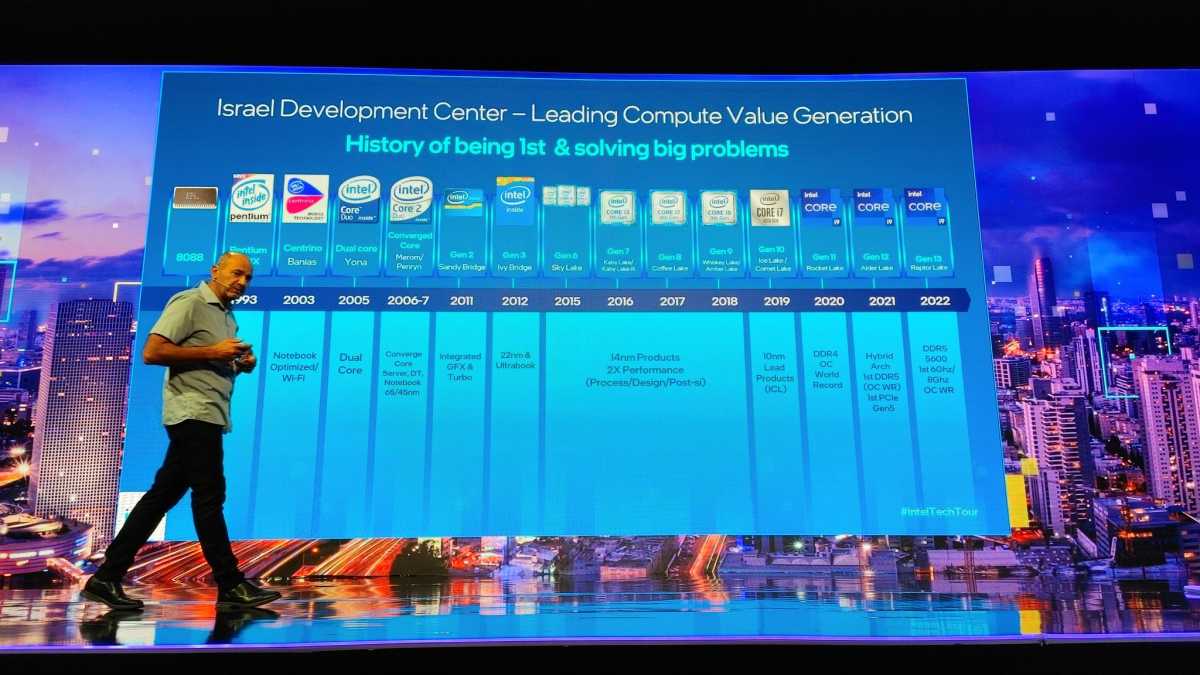Will Intel’s 13th-gen “Raptor Lake” processors be “better” than AMD’s imminent Ryzen 7000 CPUs? The long answer is no one knows until we’ve seen both on the battlefield of independent benchmarks. The short answer is yes.
Just how the heck can I say that before the CPUs are even released, let alone tested?! Am I biased, paid off, stupid perhaps? An investor?! The answer is no, no, a little yes, and no.
Besides being a little stupid, I’ve also been a cynical watcher of all things PC for more than 25 years and if there’s one thing I know, it’s that big, round numbers work on regular people.
Ergo, AMD’s Ryzen 9 7950X and its boost clock of 5.7GHz is clearly, clearly inferior to Intel’s upcoming 13th-gen Core i9’s 6GHz boost clock to normal people.
I’m sure you’re sputtering that such a take is insane since the core microarchitectures, manufacturing processes, and power and thermal limits all make comparing an Intel CPU at a certain clock speed against an AMD CPU at a certain clock speed meaningless.

Intel Development Center’s achievements – including Raptor Lake hitting 6GHz this year
I 100 percent agree with you on all those points and have, in fact, argued those points over the years until I was blue in the face. And no, you shouldn’t buy anything until we’ve seen both Ryzen 7000 and this mysterious 6GHz Raptor Lake chip in action, so you can judge which component is better for your personal computing needs.
None of that matters, however, to the person who has 10 minutes to research a new CPU at the store while staring at a tiny phone screen. What does work is seeing “Up to 6GHz!” next to a sign that says “Up to 5.7GHz!”
Sure, even if both CPUs were on the same scale, we’d know that less than 6 percent isn’t exactly a big deal. But round numbers work on us with CPU clock speeds, just like they do everywhere else in life.
“We talk about being in our 30s, and our 40s, and our 50s. We don’t talk about being in our 37s,” Eugenia Cheng, a scientist in residence at the School of the Art Institute of Chicago, told WHYY in a 2015 story on big round numbers. Cheng goes on to tell WHYY just why base 10 is so popular: “It’s very intimately linked to the fact that we have 10 fingers.”
So yes, although a 6GHz boost clock on a 13th-gen Core i9 CPU currently tells us nothing about how Intel’s chip compares to a 5.7GHz Ryzen 9 7950X, that number is unquestionably bigger and (more importantly) rounder. And in the five minutes of time the average consumer has to buy the “better” PC, that may be enough to give it an edge.




